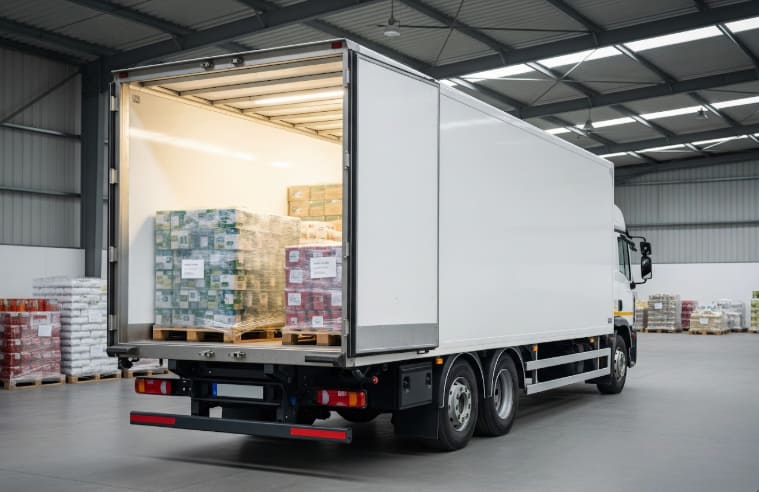Hospitality companies rely on the consistent transportation of perishable products, such as fresh seafood, dairy and ready-made meals. The delivery of such products in good condition cannot be done using ordinary delivery solutions. Many hospitality establishments rely on refrigerated transport in Fife to maintain food quality, ensure safety, and minimise unnecessary losses. In the case of restaurants, hotels, and catering services, such logistics support can have a direct impact on customer satisfaction and profitability.
Preserving Freshness and Flavour
Perishable goods spoil easily when exposed to variable temperatures. Refrigerated trucks ensure that the conditions are constant throughout the delivery process, preserving produce, meat, and dairy at safe temperatures between the supplier and the kitchen. Staying fresh implies that chefs get ingredients that work well in cooking, and customers get to enjoy meals of the best quality. In the absence of this kind of control, even high-quality products will be subject to delivery in a tainted condition.
Extending Shelf Life
Delivery in controlled environments not only safeguards goods during transit but also extends their useful life once they are in storage. Ingredients that are stored at the right temperature maintain their nutritional value and texture longer. Hospitality businesses have the advantage of reduced cases of spoiling of stock before it is used, and the kitchens can plan their menus with more confidence and flexibility.
Reducing Waste and Spoilage
Damaged products cause financial and operational problems. Frequent wastage can impact profit margins and disrupt service if ingredients are unavailable. Refrigerated transport reduces these risks by lowering the possibility of spoilage during transit. With low losses, businesses can allocate their budgets more effectively, investing the savings in menu improvements, staff training, or enhancing customer experiences.
Supporting Food Safety Compliance
Food safety laws demand that companies treat ingredients with caution at every stage of the supply chain. Refrigerated vehicles are used to guarantee these standards. Regular recording of temperature control gives evidence that products have been shipped responsibly, minimising the chances of fines or a tarnished reputation. To hospitality providers, showing that they care about food safety will create confidence among customers and regulatory bodies.
Meeting Customer Expectations
Contemporary customers demand not only quality service, but also safe, fresh, and delicious food. Hospitality facilities that use the right refrigerated deliveries are in a better position to handle these expectations. Guests at hotels, restaurants, and catered events benefit from meals prepared with ingredients that have retained their natural quality. Positive experiences, in turn, promote repeat business and word-of-mouth referrals.
Enabling Menu Flexibility
The availability of trusted refrigerated deliveries enables businesses to expand their menu offerings. Restaurants can incorporate seasonal foods or perishable foods that would otherwise be too risky to procure. Caterers will have the advantage of being sure that prepared dishes can be transported to events without jeopardising safety. This flexibility promotes creativity in kitchens and enables businesses to be unique in competitive markets.
Cost Savings Through Efficiency
Refrigerated transport is an investment, but the decrease in spoilage and waste can often justify the cost. Existing reliable delivery networks enable businesses to have constant supply chains, which do not require emergency buying at increased prices. Reduced wastes also imply better control of stock and better budget forecasting. Such efficiencies, over time, result in quantifiable financial returns.
Strengthening Supplier Relationships
Reliable refrigerated transport also helps suppliers because they are assured of the delivery of their goods in their intended state. Better trust between suppliers and hospitality businesses will lead to better partnerships, quality consistency, and more reliable service. This partnership helps create an effective food chain in which all parties, from producer to diner, benefit.
A Vital Link in Hospitality Success
Refrigerated logistics are not just a transfer of goods between point A and point B. They maintain freshness, safeguard safety, minimise waste and boost customer confidence. In the case of hotels, restaurants, and catering providers, the choice to use refrigerated transport in Fife is not just a matter of convenience, but a promise of quality and success in the long run. Through the protection of ingredients at each stage, businesses are positioned to succeed in a competitive and challenging industry.
Published by HOLR Magazine.


